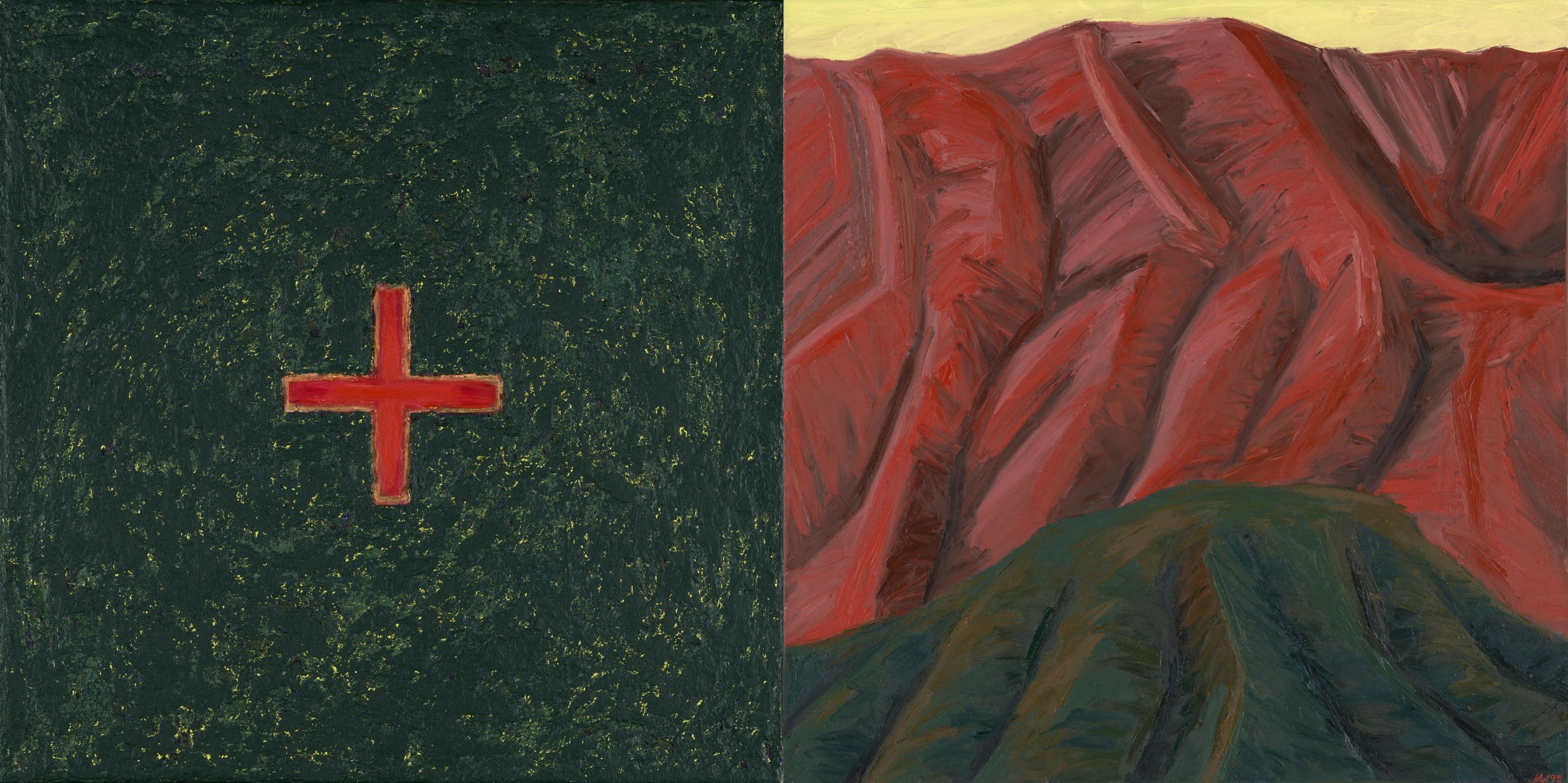The Land, Indigenous Communities, and Their Church
Scholars Rebecca Mendoza and Anthony Trujillo discuss the work of the Terralogian and what it means to decolonize religious practices
Kay WalkingStick, With Love to Marsden, 1995, oil and acrylic paint, wax, glitter on canvas, left panel: 32 1/4 × 32 1/4 in. (81.9 × 81.9 cm) right panel: 32 1/8 × 32 1/8 in. (81.6 × 81.6 cm), Smithsonian American Art Museum, Museum purchase through the Luisita L. and Franz H. Denghausen Endowment, 2021.30.2, © Kay Walkingstick, 2017
In this episode of OPTalks, PhD candidate Rebecca Mendoza interviews PhD candidate Anthony Trujillo about his mixed heritages as a member of Ohkay Owingeh Pueblo and Mexican Catholic traditions on his father’s side, and the white settler Baptist ministers on his mother’s. This conversation was held at the 2023 American Academy of Religion in San Antonio where they talked about identity markers that appear as contradictions or convergences between Indigeneity and Christianity. Mendoza also comes from mixed ancestry, of a Mexican American Catholic father and white settler mother. Trujillo shares how his grandmother insisted that his identities are “so closely tied that you can't be one without the other and in fact that it would almost be a violence to my grandma and her siblings to extricate those things from each other.” The experience of doctoral work has allowed him to delve into “how we think of ourselves.”
Mendoza and Trujillo discuss the 1680 Pueblo Revolt, the interdisciplinary nature of Indigenous studies, the Native American paradox of simultaneously holding the importance of place with the ability to move and change, and the religious relational work of the “Terralogian” to understand “spiritual beings and the spiritual body politic” to land or place.



